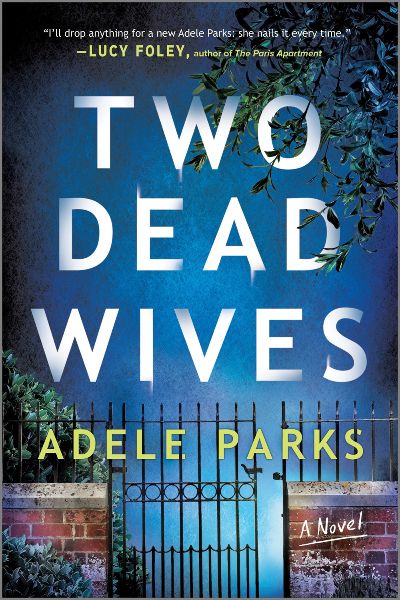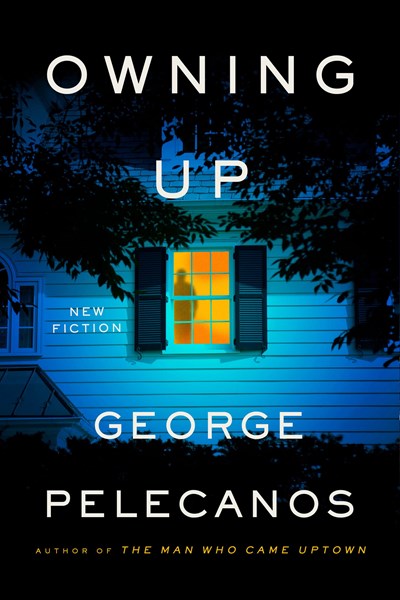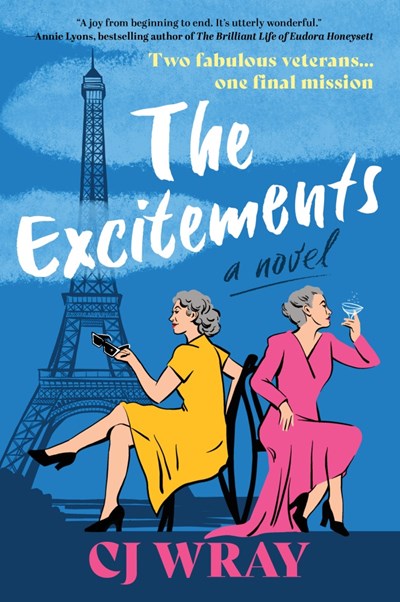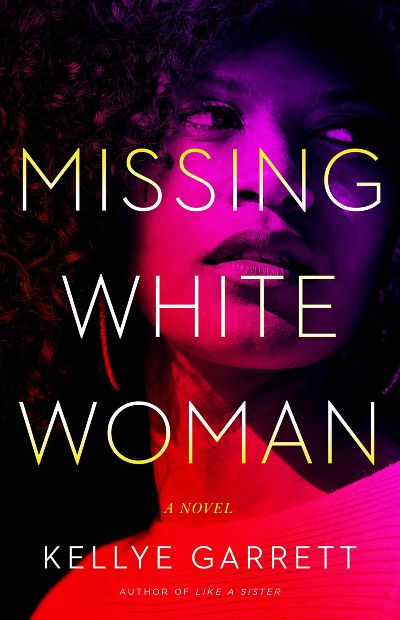Washington, DC homicide detective Alex Blum is an in-between sort of cop. He’s not jaded, but he’s used to the horror he sees on the job. He knows that, unsexy as it is, procedure gets things done, although he can cut corners when it suits. But after he’s called to a murder scene and finds that the dead man, Chris Doyle, knew one of Blum’s informants, Artie Holland, Blum throws procedure and even personal beliefs to the wind. The informant is missing—in his world as a drug dealer, probably dead, but we’ll see—but his girlfriend, Celeste, is still in his home. She and Blum take up a dangerous relationship, one that must be hidden from both his job and Artie’s cohort, who wouldn’t like a cop taking Artie’s place. Swinson’s dialog is a highlight here. The characters, from the medical examiner and cops to desperate Celeste and the dancers at a topless bar—one of Artie’s haunts—all talk us through seedy and horrible events while the rumored Y2K disaster looms and Blum edges further toward his own destruction. Swinson’s unusual ending tops the surprises in this rough, realistic noir.
Review
Prepare to fall hard for Lenny Marks, the awkward, overthinking, lonely character in Mayne’s emotional debut mystery. Helena, or Lenny, is an Australian primary-school teacher. She’s fine in the classroom, as her self-discipline means she sticks religiously to lesson plans. She also gets along well with kids, but the same can’t be said for her interactions with colleagues, whom she mostly ignores, except for Ashleigh and Amy. These are the women whom Lenny has decided will be her friends—social workers and a kind former foster-mom having long encouraged her to speak to others and get out more. (Meanwhile, Asheigh and Amy say things to Lenny like, “I love that you don’t care what you look like”). But she’s trudging along mostly fine until the letter. It arrives at the school from the state parole board and sets Lenny into a spin while Mayne, tantalizingly, lets us into the full, shocking story of Lenny’s early life. Be ready for some very sad moments, including scenes of domestic violence toward children. I just adore this character and this book and will be thinking of Lenny for years (once I finish crying). Mayne’s captivating work might bring you back to an old Oprah’s Book Club favorite, Wally Lamb’s She’s Come Undone.
In Blackburn’s latest cozy, Summer Merriweather, owner of the Beach Reads bookshop, has a special Valentine’s Day event lined up, and invites Lana Livingston, a famous author who has reimagined Romeo and Juliet with a happy ending, to lead the festivities. Summer doesn’t realize that Lana recently became a widow and is being investigated for the murder of her husband. Things worsen when Lana has tea during her bookstore appearance and is later found dead of poisoning in her hotel room. The main suspect is Glads, the woman who served the author tea during the event. A ruthless detective wants answers, and to save her friend from being railroaded, Summer gathers a group of amateur detectives, including her ex-boyfriend, to solve not only who killed Lana but maybe even who murdered the author’s husband. Fans of cozy mysteries will find everything they love here, and even though this is the third book in the series, both newcomers and readers of the previous entries will find it worthwhile.
This sequel to Woman Last Seen (2022) publishes the day after Christmas, but it’s far from your traditional holiday read. It does, however, provide more than ample entertainment for days off and/or fuel for thinking away interminable events. The main thought provoker is: how does a woman manage to be married with kids in one family while also married to someone else? How are the two husbands and the kids supposed to feel now that Kylie, also known as Kai and Leigh, the bigamist whom they thought they hated, has gone missing? And what’s the second husband to do, accused as he is of Leigh’s murder, when he knows he didn’t do it and nobody even knows if she’s actually dead? Leave this one up to the kids, who are sick of the media firestorm around them, not to mention tired of their mother’s best friend who has moved in just a little too quickly and whom they know visits Dad’s room at night. Philosophical questions quickly give way to a thrilling investigation and final pages that will keep readers on edge and rooting for justice.
George Pelecanos is such a wonderful writer—word by word, sentence by sentence, paragraph by paragraph—that you can finish any of these stories only to wonder: how did I get here so fast? In these four novellas, Pelecanos mines familiar territory—Washington D.C. and Baltimore—areas he has explored in his 20-plus novels and as a film and television producer and writer who has worked on the HBO series The Wire, Treme, and more. In the first story, “The Amusement Machine,” two men—one white, Ira; and one Black, Jerrod—meet at a book group in jail and form a tentative friendship that extends beyond prison. Until a foolhardy act on Ira’s part, which nearly implicates Jerrod, seemingly destroys whatever relationship they might have. In “The No-Knock,” a family’s home is invaded by the police operating under a no-knock warrant, which allows the cops to force entry without identifying themselves. They are seeking one of the teenage sons, Vince, who eventually turns himself in, guilty of robbing a marijuana dealer. But while the son never again engages in criminal activities, the violence and disruption of the home invasion is something the father can never get past, with it haunting him for the rest of his life. Novellas are great for book groups, especially today when people are often intimidated by a 300-page novel, but crime fiction offers few novella choices. This collection is one of the very best.
Clear your calendar, shut off all the devices, and order in some take-out. This lovely, witty story about the two, nearly 100-year-old, Wilson sisters and their many escapades—they call them “excitements”—is that captivating. And it succeeds without an ounce of the treacly cuteness so often encountered in crime fiction featuring female nonagenarians. The sisters are well-known as World War II veterans—Josephine served in the Women’s Royal Navy and Penny in the First Aid Nursing Yeomanry—and their wartime efforts seem innocent enough. But the truth is far more complicated, and each woman has a complex history that lives on into the present. As they head off to Paris to receive the Légion d’honneur with their beloved great-nephew, Archie (why can’t he find a nice husband, they wonder?), the story moves between the present and the war years, revealing the double lives of the sisters. While the novel takes several serious turns—even if their motto is toujours gai!, cheerful under all circumstances!—it always returns to its essence: a joyous, uplifting tale that looks forward fearlessly. For readers who enjoyed Mrs. Plansky’s Revenge, Killers of a Certain Age, and The Thursday Murder Club.
This is one wild, suspense-driven tale, equally rich in characterization and plot. Breanna is on a mini-vacation with her new boyfriend, Ty, staying in a beautiful brownstone in Jersey City while touring Manhattan. Ty’s thought of everything, and the long weekend is 95 percent perfect, except for that five percent when Ty won’t stop with the work calls. But when Bree wakes up on their final morning, she can’t find Ty anywhere. What she does discover, strewn in the foyer, is the bloody corpse of a young woman that turns out to be Janelle, who has been missing for days. From here, things really take off, with Bree’s best friend—they’ve been estranged since college—arriving on the scene (she’s a take-charge criminal attorney), while Billie, a super-successful makeup influencer, rallies her thousands of followers into seeking #Justice4Janelle. Garrett does a great job of tracking the racism Bree experiences, from the neighbors’ microaggressions to the stereotypes purported about Ty to the national frenzy that only a white woman’s disappearance could generate (and thus the book’s title). A great cast, a wide-reaching narrative, and a resolution that will leave readers ruminating for days. Can’t wait to introduce this to a book group
This is Estes’s debut novel, but far from her first brush with the TV journalism world portrayed in the book. Like her main character, Jolene Garcia, the author is a reporter in Phoenix, an Emmy winning one at that. Readers will get the feeling that she’s all too familiar with the pressure that’s on Jolene to do it all—investigate, write, present—all while looking fabulous on TV, then rinse and repeat on social media. Jolene is tired of the fluffy stories that the station runs to please the manager’s wife, and when a death occurs at a local radio station, she’s all over it. The deceased might be Alex Jones-alike Larry Lemmon, a talk-show host who divides his time between hating facts and hating immigrants more, a story that’s bound to draw viewers in droves. Dare she hope? And better again, maybe he was murdered. Her TV-news sensation dreams are fulfilled, but many questions remain. Assisting Jolene in getting the scoop on those is a reluctantly helpful police officer whose portrayal of departmental politics and ethics add narrative tension. But best is Jolene’s relentlessness and endurance of whatever it takes to get the story. Estes says that “J.A. Jance’s Ali Reynolds series planted the seed for my writing while Hank Phillippi Ryan’s Jane Ryland series helped it grow,” so fans of those series are a natural fit for this gritty thriller.
Actor and now debut novelist Lindstrom explores the dark side of life in Los Angeles. Winston Greene used to be one of the top actors in the world, but his prestige is gone, along with most gigs. His six-year-old granddaughter arrives in the middle of the night after getting a ride from a stranger; she appears out of sorts, and she’s carrying a stuffed puppy and a thumb drive. The drive contains a ransom video featuring Winston’s daughter, who will die unless he gives her kidnappers all the money from his prestigious career. Going to the police will only put a target on Winston and his granddaughter’s backs. Thankfully, he has some friends who can help, including a former LAPD detective and a stuntman. These characters are all flawed, but that makes the story more engaging than if they were squeaky-clean superheroes. Lindstrom uses his knowledge of Hollywood to deliver a clever and gripping thriller, and he writes like a pro. It is hard to believe this is a debut.
This new title from Delia Pitts—author of the Ross Agency series—offers everything that fans of detective fiction are looking for. Vandy Myrick, a former cop—she joined the force to impress her cop dad—is now a detective in Queenstown, New Jersey, her hometown, where she sets up a firm with BFF and trial lawyer Elissa. They’re two Black women in a town where racism, “casual like flip flops down the Jersey shore,” is always bubbling right under the surface. Vandy’s work is mainly divorce cases, and when she gets a call from the Mayor’s nephew—Queenstown royalty—asking her to track his wife, she just assumes that one more “Q-Town” marriage has hit the rocks. Except this gig quickly spins out of control when Vandy walks in on a double homicide, one that the powers that be are all too eager to shut down. Pitts has written a strong narrative that ricochets from Vandy’s tragic past to her gutsy present, keeping readers totally engaged to the very last page…and eager for more. Fans of Robyn Gigl’s thrillers will enjoy visiting New Jersey with Vandy.










